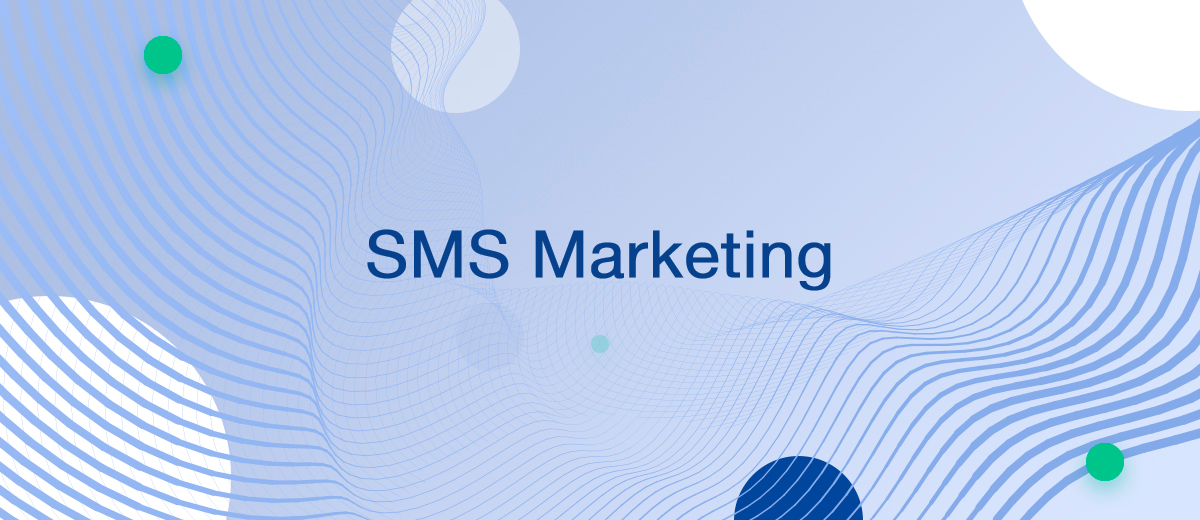In the fast-paced realm of digital marketing, SMS marketing emerges as a powerful tool, offering unparalleled immediacy and reach. Despite the proliferation of new communication platforms, SMS—or text messaging—remains a staple for direct and effective consumer engagement. This article delves into the essentials of SMS marketing, from its definition to the strategic nuances that can elevate a simple message into a significant sales driver. Whether you're a seasoned marketer or a newcomer, understanding the benefits and challenges of SMS marketing is key to leveraging its potential in your promotional mix.
What is SMS Marketing?
SMS marketing is a direct marketing technique that uses text messaging to communicate promotional messages to a broad audience swiftly and effectively. Below are the key aspects of SMS marketing:
- SMS (Short Message Service): This is the technical term for text messaging which uses standard messaging protocols to let mobile devices exchange short text messages.
- Character Limit: SMS messages are typically limited to 160 characters, requiring marketers to create concise, impactful content.
- Promotions: Marketers use SMS to send coupons, discounts, and special offers directly to consumers' phones.
- Alerts: SMS is utilized to inform customers about new product launches, updates, or urgent news.
- Reminders: Businesses send reminders for appointments, billing, and events to enhance engagement and reduce no-shows.
- Polls and Surveys: SMS can quickly collect customer feedback on various aspects of products or services.
- Direct and Personal: SMS provides a direct and personal line of communication, usually perceived as more personal than other marketing channels.
- Opt-In Feature: Customers must subscribe to receive SMS updates, ensuring messages are delivered to a targeted, interested audience.
- Email vs. SMS: SMS messages typically boast higher open rates and faster read times compared to emails.
- Social Media vs. SMS: SMS ensures messages reach the recipient’s inbox directly, unlike social media, where content can get lost in a crowded feed.
Understanding these fundamentals of SMS marketing is essential for effectively integrating this tool into your marketing strategy, leveraging its unique benefits to enhance customer engagement and drive sales.
Benefits of SMS Marketing

SMS marketing offers several compelling advantages for businesses aiming to connect with their audience effectively. Here are the key benefits:
- High Open Rates: SMS messages boast an exceptionally high open rate compared to other forms of communication like email. Typically, SMS messages are opened within minutes of receipt, ensuring your message is seen quickly.
- Immediate Delivery: Text messages are delivered almost instantly, making SMS an ideal channel for time-sensitive messages.
- Wide Reach: Nearly everyone has access to a mobile phone capable of receiving SMS, allowing businesses to reach a broad audience, including those without internet access.
- Cost-Effective: SMS marketing is generally less expensive than other marketing methods, particularly when considering the reach and impact it provides.
- Personalization: Text messages can be personalized based on customer data, which enhances the relevance and effectiveness of the marketing efforts.
- High Engagement Rates: SMS prompts high engagement rates, partly because messages are short and to the point, making it easy for recipients to read and act on them.
- Easy to Integrate with Other Channels: SMS can seamlessly integrate with other marketing channels, creating a cohesive marketing strategy that leverages multiple touchpoints.
- Trackable: With SMS marketing, you can track who opened your message and when, and which links were clicked, providing valuable insights into campaign effectiveness.
- Immediate Feedback: Customers can reply to SMS messages, offering immediate feedback that can inform future marketing strategies and customer service improvements.
- Compliance and Opt-In Nature: SMS marketing requires customers to opt-in, which means those receiving your messages are genuinely interested in your offerings, potentially increasing conversion rates.
These benefits make SMS marketing a powerful tool in a marketer’s arsenal, especially for campaigns aiming for high visibility and engagement within a target audience.
Key Components of an Effective SMS Marketing Campaign
To maximize the impact of SMS marketing, several key components need to be carefully considered and implemented. Here are the essential elements that contribute to a successful SMS marketing campaign:
- Clear Calls to Action: Every SMS sent should have a clear and concise call to action. This could be a prompt to visit a website, use a discount code, or participate in a poll. The action expected of the recipient should be unmistakable and easy to follow.
- Personalization: Personalized messages resonate more with recipients. Use customer data to address recipients by name and tailor messages based on their preferences and past behaviors.
- Timing and Frequency: The timing of messages can significantly affect their effectiveness. Avoid sending messages too early in the morning or too late at night. Plan the frequency of messages to avoid overwhelming your audience while keeping them engaged.
- Segmentation: Divide your audience into segments based on demographics, past purchase behavior, or engagement levels. Tailored messages to specific segments can increase relevance and effectiveness.
- Compliance with Regulations: Adhere to legal standards and regulations such as GDPR in Europe or the TCPA in the United States. Ensure you have explicit consent from recipients before sending SMS messages.
- Integration with Other Marketing Efforts: SMS should not stand alone. Integrate it with email, social media, and other marketing channels to create a cohesive communication strategy.
- Mobile-Friendly Content: Ensure that any web content linked from SMS messages is mobile-friendly. Most recipients will access it on their mobile devices.
- Effective Metrics: Track the success of your campaigns through metrics such as open rates, conversion rates, and return on investment. Use this data to refine future campaigns.
- Quality Content: Keep messages clear, direct, and free of errors. Quality content reflects on your brand's image and credibility.
- Testing and Optimization: Regularly test different messages, timings, and calls to action to see what works best with your audience. Use the results to optimize future campaigns.
Implementing these components will help ensure that your SMS marketing campaigns are not only compliant and well-received but also effective at achieving your business objectives.
Challenges and Considerations
While SMS marketing offers many benefits, it also comes with its own set of challenges that marketers need to navigate carefully. Understanding these considerations is crucial for running successful campaigns. Here are some of the main challenges and considerations in SMS marketing:
- Privacy Concerns: SMS marketing must respect privacy laws and regulations. Obtaining explicit consent from recipients before sending messages is crucial to comply with laws like the GDPR in Europe and the TCPA in the U.S. Violating these regulations can lead to hefty fines and damage to your brand’s reputation.
- Message Limitations: The 160-character limit of SMS requires messages to be concise and to the point. Crafting effective messages within this constraint can be challenging, as it leaves little room for fluff or extensive detail.
- Opt-Out Rates: Managing opt-out rates is vital. If too many recipients choose to unsubscribe, it could indicate issues with message frequency, relevance, or value. It’s important to monitor these rates and adjust strategies accordingly.
- Market Saturation: Many consumers receive numerous marketing texts from various businesses, which can lead to message fatigue. Differentiating your messages from the competition is essential to capture attention and engage effectively.
- Dependency on Mobile Networks: SMS marketing’s effectiveness is contingent on the reliability of mobile networks. If there are network failures or delays, messages might not be delivered on time, affecting the timeliness of the campaign.
- Cost Management: While SMS marketing is generally cost-effective, costs can escalate, especially when sending a high volume of messages. It’s important to manage the budget carefully to ensure a good return on investment.
- Limited Analytics: Unlike digital marketing channels that offer extensive analytics, SMS can sometimes provide limited insights, making it difficult to measure the success of a campaign beyond basic metrics like open rates and click-through rates.
- Cultural Sensitivity: Messages must be culturally appropriate and sensitive. What works in one region or demographic might not work in another, requiring localized strategies.
- Technical Issues: Technical issues, such as messages not being delivered or received in the wrong format, can undermine campaign effectiveness. Regular testing and working with reliable SMS service providers can help mitigate these issues.
By addressing these challenges and carefully planning SMS campaigns, businesses can effectively leverage SMS marketing as a powerful tool to reach and engage their target audience.
Tools and Technologies for SMS Marketing
Implementing an effective SMS marketing campaign requires the right set of tools and technologies. These solutions facilitate campaign management, ensure compliance, enhance engagement, and provide valuable analytics.
Here is a list of key tools and technologies that can support your SMS marketing efforts:
- SMS Services: These are platforms that allow businesses to send bulk SMS messages to a list of contacts. Examples include Twilio, ClickSend, and BulkSMS. You can optimize your work with these tools by implementing automation. Set up integrations for Twilio, ClickSend, and BulkSMS to automatically update mailing lists based on data from other systems.
- Marketing Automation Platforms: Tools like HubSpot, Marketo, and Brevo integrate SMS marketing with other channels like email and social media. They provide features for managing contacts, segmenting lists, automating campaigns, and analyzing results across channels.
- Customer Relationship Management (CRM) Systems: CRMs like Salesforce and Zoho integrate SMS functionalities to maintain comprehensive customer profiles. This integration helps personalize messages based on customer data and interaction history. By the way, thanks to our service, you can independently configure integrations for Salesforce and other popular CRMs.
- Analytics and Optimization Tools: Services such as Google Analytics can track SMS-driven web traffic and conversions. Specialized SMS analytics tools also provide insights into delivery rates, open rates, and engagement metrics.
- Compliance Management Tools: These tools help ensure that your SMS campaigns comply with legal regulations such as the TCPA and GDPR. They manage consent and opt-out requests effectively to maintain a clean and compliant contact list.
- A/B Testing Platforms: Tools like Optimizely or VWO can be used to test different SMS messages to see which performs best. This is crucial for optimizing the language, timing, and calls to action in your SMS campaigns.
- Mobile Optimization Tools: Since most SMS messages include links to websites, it’s essential that these linked pages are optimized for mobile devices. Tools like Adobe Experience Manager Mobile simplify the creation of mobile-friendly content.
- AI and Machine Learning Platforms: Advanced platforms are using AI to predict the best times to send messages based on user engagement patterns and to personalize messages at scale.
Choosing the right mix of these tools can significantly enhance the effectiveness of your SMS marketing campaigns, providing the capabilities needed to engage customers, measure results, and optimize performance.
Conclusion
SMS marketing remains a potent tool in the digital marketing arsenal, distinguished by its high open rates, immediacy, and broad reach. This form of marketing leverages the ubiquity of mobile phones to deliver timely and personalized messages directly to consumers. While it comes with challenges such as privacy concerns and message limitations, the right strategies and tools can overcome these hurdles, enhancing campaign effectiveness. By integrating SMS marketing into a multi-channel strategy, maintaining compliance with regulations, and utilizing advanced tools for optimization and analytics, businesses can harness the full potential of SMS to engage customers, drive conversions, and build lasting relationships. As mobile technology continues to evolve, SMS marketing will likely remain a key player in the communication strategies of successful businesses.
Use the SaveMyLeads service to improve the speed and quality of your Facebook lead processing. You do not need to regularly check the advertising account and download the CSV file. Get leads quickly and in a convenient format. Using the SML online connector, you can set up automatic transfer of leads from Facebook to various services: CRM systems, instant messengers, task managers, email services, etc. Automate the data transfer process, save time and improve customer service.
